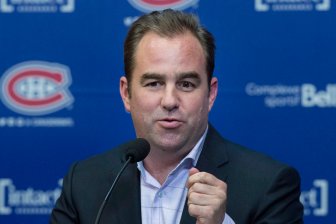The B.C. government has partially dug itself out of a massive hole created by COVID-19 crisis, but the province’s economy is still nowhere near pre-pandemic levels.

Finance Minister Selina Robinson released a financial update on Wednesday that showed B.C. ended the 2020-21 fiscal year with strong credit ratings and a lower-than-projected deficit of $5.5 billion.
“We are on solid fiscal ground because British Columbians have done the right thing, protecting all of us by getting vaccinated and practising safe distancing throughout the pandemic,” Robinson said.
“People’s diligence around the provincial health officer’s guidance has meant we were able to keep much of our economy open. Strong recovery in many sectors has allowed us to shift from the broad-based support provided during the uncertainties of last year to a more targeted approach for those suffering the greatest effects as the pandemic progressed.”

The province originally projected a year-end budget loss of $8.1 billion.
It is also an improvement over last fall’s projection of more than $13 billion, which came at end of the first wave of the pandemic.
But it is still a far cry from the balanced budgets the government inherited in 2017 and were projected prior to the rise of COVID-19.
Read more: B.C. budget sets aside nearly $6 billion for COVID support, forecasts $8.1-billion deficit
Spending on COVID-19 support and recovery programs reached $10.1 billion by the end of March 2021. But revenue also increased by $3.5 billion over revenues in 2019-20.
The boost is largely linked to some sectors proving resilient during the pandemic, federal contributions for COVID-19 support and more savings and higher earnings at ICBC.
The province is still expected to run deficits for the next several years due to the impacts of COVID-19 and the financial support the province is allocating for pandemic recovery.

B.C. continues to lead the country in credit ratings from the major international rating agencies.
“We all did what needed to be done and as a result, B.C. remains on stable fiscal ground,” Robinson said.
Looking forward, the province is forecasting a $9.7-billion deficit for 2021-22, following by $5.5 billion in 2022-23, then dropping to $4.3 billion in 2023-24.
The province also released a list of the top public sector earners in B.C.
Read more: B.C. provincial health authority CEO steps down following review into allegations of misspending
Powerex CEO Thomas Bechard leads the way with total compensation of $934,521, down slightly from a year before.
UBC president Santa Ono is second on the list with total compensation of $611,712 and BC Hydro CEO Chris O’Riley is third at $590,114 a year.
Provincial Health Services Authority president Benoit Morin was paid $479,814 in 2020/21. Morin stepped down from the job in February after a review into allegations of misspending at PHSA.
The review followed media reports of a $7-million purchase of PPE that ended up being unusable.
© 2021 Global News, a division of Corus Entertainment Inc.
B.C. economy starting to recover as COVID-19 restrictions ease - Global News
Read More


No comments:
Post a Comment